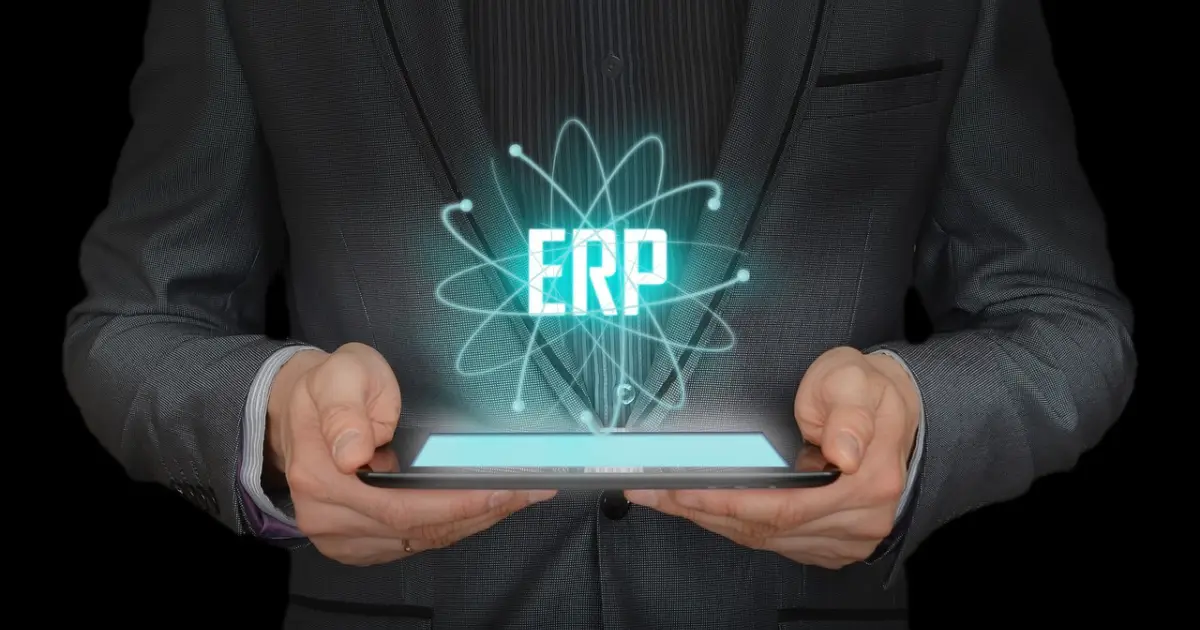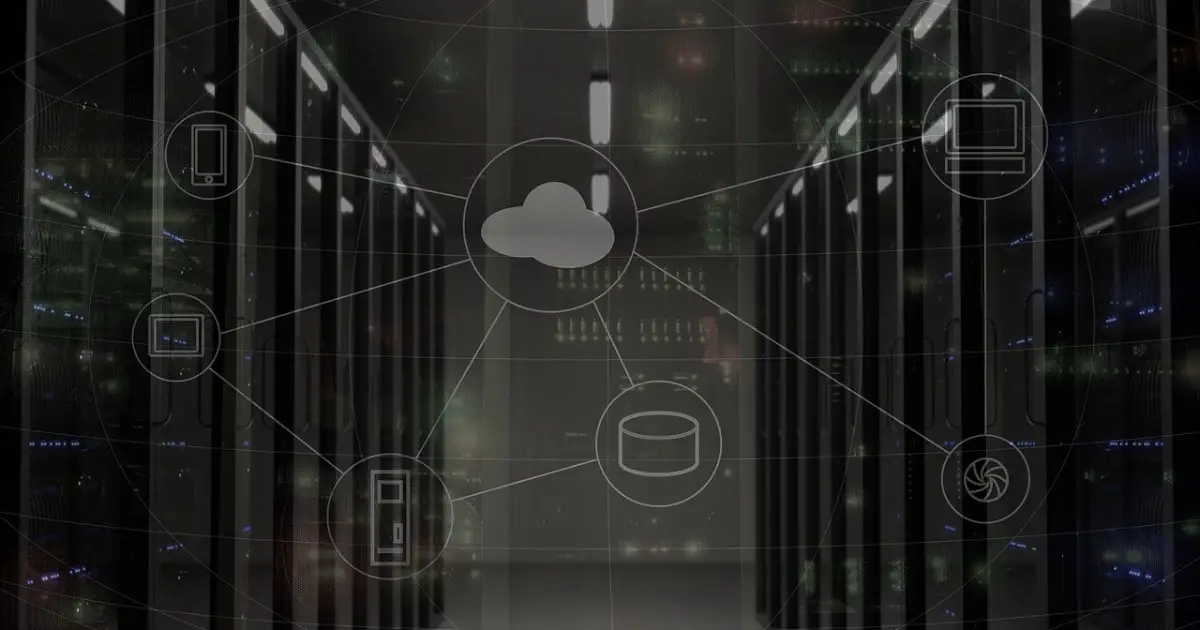focus notes


Advantages and disadvantages of implementing ERP | Explaining reasons why companies need it, such as realizing operational efficiency

table of contents
“I want to know what benefits ERP has.”
“I hear that ERP is good, but can I utilize it even if I introduce it to my company?”
I'm sure many IT department managers think this way. Nowadays, there are calls for DX and IT, and with the abundance of IT tools, I feel that many people are confused about which system to implement.
ERP has the following main benefits:
- Information can be managed centrally
- You can manage security all at once.
- Easier to use each data
- It will be possible to make management decisions more quickly
- Improve and increase the productivity of each department
- Reduces labor costs during operation
- Possible to strengthen internal controls
However, even after reviewing only the benefits, you may wonder why ERP provides these benefits. In this article, we will explain in detail the benefits of implementing ERP. If you are unsure about implementing ERP, please refer to it.
Business efficiency! Explaining the benefits of introducing an ERP system
If you implement an ERP system, you can expect the following seven benefits.
- Information can be centrally managed
- Security can also be centrally managed
- Easier to use each data
- It will be possible to make management decisions more quickly
- Improve and increase the productivity of each department
- Reduce costs such as personnel expenses during operation
- Possible to strengthen internal controls
Let's take a closer look at the benefits of each.
Information can be centrally managed
By introducing an ERP system, it becomes possible to centrally manage information.This is because ERP is a tool that allows management resources and company information to be consolidated and managed in real time.
Traditionally, each department basically used its own system. For example, the sales department would use an SFA (sales force automation) tool, and the accounting department would use a cloud accounting system. Therefore, to manage and check each figure, it was necessary to access each system every time. This is inconvenient.
However, with an ERP system, there is no such hassle. This is because all information is consolidated in the ERP system. It's easy to check customer information and check income and expenditure at the same time. This ease of use can be considered an advantage of ERP.
In addition, by managing each piece of information centrally, you can avoid having different departments input the same data. This is because data is collected in one system and the information is displayed in real time. By reducing the probability of duplicate data being generated, you can dramatically improve the consistency of information in the database.
Security can also be centrally managed
By introducing an ERP system, you can also achieve centralized security management.Because in-house information can be consolidated into ERP, the security that needs to be managed can also be consolidated into ERP.
In the first place, when it comes to information within a company, the degree of importance and confidentiality varies depending on the information. It was also necessary to change the security level depending on the information handled by each department.
Especially in accounting and human resources departments that handle highly confidential information such as credit cards and personal information, a high level of attention to security is required. If you have to do this in parallel with other work, the burden will be even greater.
However, by implementing ERP, there is no need for each department to worry about security. In addition to reducing the burden on business personnel, it will also be possible to unify security levels that were previously separated by department.
ERP systems also allow for internal security measures such as granting access rights and restricting access. By granting and managing appropriate rights, it is also possible to take measures to prevent information leaks from within the company.
Easier to use each data
Another benefit of implementing an ERP system is that it makes it easier to utilize each data.By introducing ERP, even information that would otherwise be difficult to notice can be made visible.
For example, manufacturing and logistics departments can use ERP systems to track inventory levels, order status, supply chain status, etc. Depending on the system implemented, this information can be visualized on a dashboard.
In other words, you can see at a glance excess inventory, shortages, lead times, supplier performance, etc. Utilizing such data will make it easier to devise measures to improve operations.
It will be possible to make management decisions more quickly
The introduction of an ERP system also enables faster management decision-making.This is because the information necessary for making decisions can be easily checked in real time and in a summarized form.
Traditionally, management decisions required waiting for reports from each department. Depending on the size of the company, it could take a significant amount of time just to gather the management figures needed for analysis.
However, ERP is a system that allows the entire department to constantly update information, so information necessary for management decisions, such as asset information and sales, can be checked in real time. Because there is no need to start gathering information, executives have the information they need to make decisions right away. As a result, quick management decisions can be made.
In addition, using ERP makes it easier for people other than management to check necessary information. Depending on whether access privileges are granted, managers and general employees can also understand each number. Since information and situations can be shared across the company, it is thought that it will be easier for individuals to act on behalf of the company.
Improve and increase the productivity of each department
By introducing an ERP system, we can also expect to improve and enhance the productivity of each department.This is because implementing ERP can improve the efficiency of business processes. It depends on the ERP system you introduce, but basically you can expect the following effects.
| Department example | Specific examples of efficiency |
|---|---|
finance department | Streamline processes such as financial reporting, budget management, and expense tracking |
| Human resources department | Streamline employee data management, payroll calculations, recruitment processes, performance evaluations, etc. |
| marketing department | Efficiently manage customer data, track sales pipelines, analyze marketing campaigns, and more |
purchasing department | Efficiency of ordering process and cost management |
ERP is often thought of as a tool for overall optimization, but as mentioned above, it can also be useful for streamlining the work of each department. ERP is also a recommended tool if you are aiming to improve the work efficiency of each department.
Reduce costs such as personnel expenses during operation
The introduction of ERP, which integrates information across the entire company, can be said to be effective in reducing personnel costs during operation.This is because maintenance and management systems are consolidated into a single ERP system.
For example, in the past, maintenance of core systems assigned to each department required an enormous amount of time. This is because maintenance methods may vary depending on the number of tools in place, which takes more effort and time.
However, once you implement an ERP system, ERP becomes the only tool that requires regular maintenance. The time required for maintenance can be significantly reduced. Not only that, it will also reduce the burden of other maintenance-related tasks, such as notification work to all concerned parties. As a result, operational costs such as personnel costs can be reduced.
Also, if you introduce a cloud-based ERP, you can leave maintenance, operation, and maintenance to a company that provides it. Since the burden on information systems can be further reduced, further reductions in personnel costs can be expected.
Possible to strengthen internal controls
Implementing an ERP system allows you to strengthen internal controls.This is because corporate information can be centrally managed, making it easier to detect fraud such as information falsification.
For example, if data is managed separately in each department, the risk of data falsification and information leaks increases. Even if data is leaked or tampered with in one department, it cannot be accessed or verified from another department. This tendency is thought to become stronger as the number of departments and employees increases. It may be difficult to detect the problem until it becomes a big problem.
Another disadvantage is that if multiple tools are introduced, there are a wide range of points to pay attention to, making it easier for information to be overlooked.
However, by introducing ERP, it is possible to create an environment where data falsification and information leaks are easier to detect. This is because centralized management means that usage and monitoring are limited to one system. By attracting the attention of many people, fraud and information leaks will be more likely to be discovered than if multiple systems were operated.
Additionally, some ERP systems are equipped with a function that allows you to keep access logs of updated areas.If the tampered part is identified, it will be easy to identify who tampered with it, when it was tampered with, and what it tampered with. Because of these multiple factors, it can be said that implementing ERP will strengthen internal controls.
Explaining the disadvantages of introducing an ERP system
There are four possible disadvantages when implementing an ERP system:
- There is a certain cost when introducing
- It takes time to check the functions your company needs before introducing them.
- There is a high probability that changes will occur to existing business flows
- Employees need to be trained on how to operate the system
Be sure to understand them correctly in advance to avoid any problems after installation.
There is a certain cost when introducing
The disadvantage of ERP is that it requires a certain amount of cost during implementation.The costs required when implementing ERP include the following:
| On-premise type | Cloud type |
|---|---|
|
|
On-premise type is a "one-time purchase type" ERP, also known as a package version. In addition to the basic license fee and installation fee, you may also need to pay for customization if you wish.
In the case of an on-premises type, initial costs are inevitably high because not only the ERP system software but also server construction and maintenance costs are required. However, some on-premises products require a license, so prior confirmation is essential.
Cloud-based systems can be installed relatively cheaply compared to on-premises systems. In particular, since there is no need to build your own server at the time of introduction, it is possible to reduce initial costs. However, in addition to the basic license, there is also a user license.
User licenses are required for each employee using the ERP system, and costs continue to be incurred while using the ERP system. Considering the number of user licenses required and a long-term perspective, it may be cheaper to choose an on-premises model.
Either way, it will still cost money, so it is important to choose an ERP that suits your company.
It takes time to check the functions your company needs before introducing them.
One of the disadvantages of implementing an ERP product is the hassle of having to check which functions your company needs before implementing it.There are many ERP products, and each product has different functions and ease of use, so you need to understand the functions your company needs in order to select a product.
To give a typical example, a ``product inventory function'' is not essential for companies that primarily engage in marketing. However, many ERP systems also include production management functions, so if you choose a product based solely on name value, you will be left with unnecessary functions.
As mentioned earlier, implementing ERP costs a considerable amount of money. It can be said that it is essential to conduct a survey of the entire company in advance and select the necessary functions.
However, identifying the functions necessary for the entire company is by no means easy. When considering introduction, be aware that a period of time is required to identify the functions. If you want to select functions efficiently, it is also effective to collect feedback from the field through surveys.
There is a high probability that changes will occur to existing business flows
Another disadvantage of implementing ERP is that there is a high probability that changes will be made to the existing business flow.This is because when you introduce ERP, you will be able to discontinue the tools you have been using, and you will be able to perform tasks that were previously done on paper within ERP.
Let's take a look at an example of the difference between traditional business flow and implementing ERP.
| Conventional work flow | Business flow after ERP implementation |
|---|---|
|
|
You can see that the business flow has changed significantly. As a company grows larger, more employees will be forced to change their work flow.
Additionally, if the business flow changes, related operations will also need to be changed, such as changing the business manual or changing invoices from paper to PDF. If many employees are unfamiliar with IT tools or unable to keep up with rapid changes, the possibility of resistance from the workplace cannot be ruled out.
When implementing ERP, it is important to consider that there is a high probability that changes will be required to the business flow, and to listen to the voices of the workplace before implementation. Of course, it is important to choose products that reflect the voices of the workplace, but rather than incorporating them into the entire company at once. Products that can be started smallIt is also recommended that you listen to the reactions of those involved.
Employees need to be trained on how to operate the system
Once you introduce ERP, you will also need to educate your employees on how to operate it.No matter how easy an ERP is to use, no one will be able to use it perfectly from the beginning. Therefore, once you have decided to introduce an ERP product, start preparing advance training tailored to the product.
Preliminary training can be conducted in the following ways, depending on the product being introduced.
- Product introduction briefing session
- Training on how to use the product
- e-learning
If you want to provide training on operations within your company, we recommend separating the training by job/function. By clarifying the differences from existing systems and business flows, you will be able to accept system changes without confusion.
At the same time, we are also preparing the manuals that will be needed when we actually begin operation. It is useful to pick out points in advance that may cause you to stumble during daily operations and write them down along with possible solutions.
Depending on the ERP product being introduced, we may also provide support for user training for employees. If it is difficult to handle the issue within your company, you may consider using user support. Training provided by professionals will allow for smoother ERP operations and system changes.
A must-see for business managers! Explaining frequently asked questions about ERP
Finally, let's take a look at frequently asked questions to clear up any questions you may have about ERP. The following two questions will be addressed here:
- What exactly is ERP?
- What is a Security Incident?
What exactly is ERP?
ERP refers to the idea of managing the "management resources and information" necessary for corporate management more efficiently by managing them in a centralized manner.The tool to realize this idea is an ERP system. The main functions available are as follows.
- Human Resource Management
- labor management
- Financial management
- accounting management
- budget management
- Sales management
- Production control
- Sales management
- Purchasing management
- customer management
- Inventory control
- project management
Since it is a tool that allows you to centrally manage all information within a company, from management resources, you can see that it has a wide range of available functions. Since it provides functions related to departments required by companies, it is possible to centrally manage information and manage a series of business processes within ERP. It can be said to be a very useful tool if you want to unify management tools within your company and centralize information management.
There are also ERPs that handle some of the above functions and can be linked with external tools for things like accounting management. You may be able to choose an ERP to implement according to the issues your company wants to solve.
For more information on ERP, please refer to the article below.
What is ERP? Explaining the differences from core systems, formats, benefits, and flow of implementation
What is a Security Incident?
A security incident is a term used to refer to a serious security incident or fraud.Possible causes include the following:
- Malware infection
- Unauthorized access
- Impersonation
- DoS attack
- information leak
- Information falsification
- Lost or stolen storage media
- Damage to media due to natural disasters
In addition to security incidents caused by natural disasters, there are also incidents caused by human attacks. Human-related attacks can be divided into external attacks and internal attacks by employees, etc.
Security issues with IT tools, not just ERP, are basically a game of cat and mouse. If you take countermeasures against hackers and raise the level of security, it is possible that hackers will improve their skills and break through the security.
Therefore, it is important to raise the level of understanding of security throughout the company and ensure regular security updates, access restrictions, and management.
Also, if you are implementing an ERP product, we recommend choosing a product with solid security measures. You can operate and manage with greater peace of mind.
summary
We introduced the advantages and disadvantages of implementing ERP. Many people may have been surprised to learn that it not only allows for centralized management of information, but also helps strengthen internal controls.
The basic idea of ERP is to control information and make it easier to use, thereby increasing the productivity of companies and operations as a whole. Productivity improvements have reached a plateau with improvements to business procedures and the introduction of general IT tools. It can be said that it is a necessary tool for companies that think like this.
However, there are many ERP products, and the functions and costs vary widely. If you think, "I understand the benefits, but I'm still unsure which one to choose," please feel free to contact us.
Achievements left behind
48 years since its establishment.
We have a proven track record because we have focused on what is important.
It has a long track record in both the public and private sectors.
Number of projects per year
500 PJ
Annual number of business partners/customers
200 companies
Maximum number of trading years
47 years
Total number of qualified persons
1,870 people






